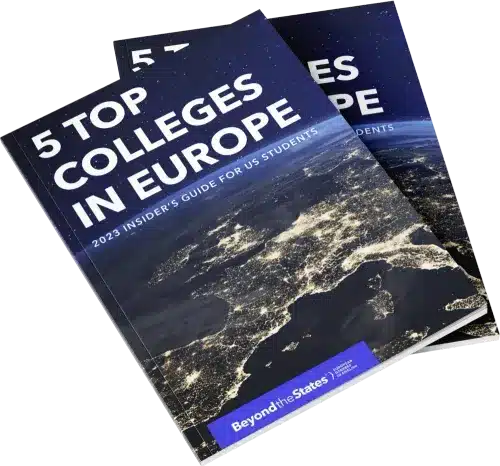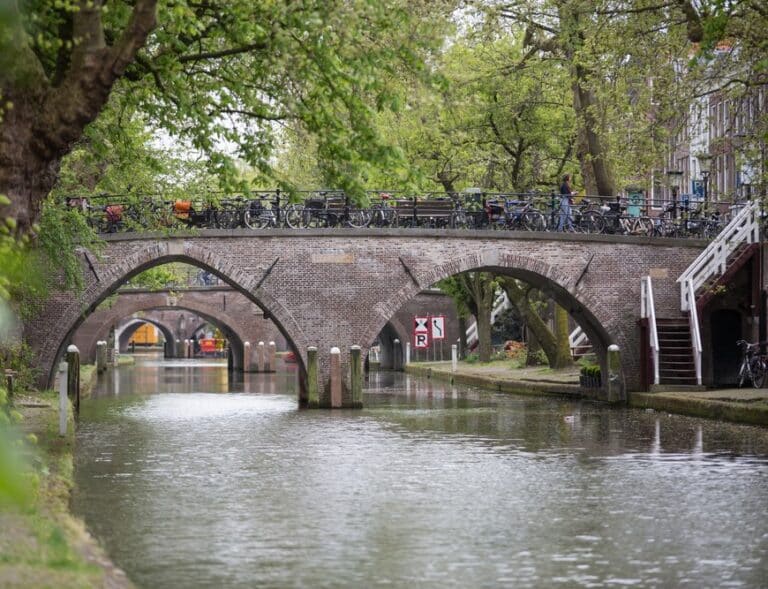The Story of Kyle in the Netherlands
Hi, I’m Kyle, I’m from Kennett Square, PA, and currently live in Rotterdam, Netherlands, where I study International Business at Rotterdam University of Applied Sciences (RUAS). As someone who lived in the United States my whole life, deciding to leave everything behind and move to Europe took every ounce of courage I had, but it has been the best decision I’ve ever made. Below, I’ll walk you through the basics of my study program.
FREE INSIDER’S GUIDE

Top 5 English-Taught Colleges in Europe
Kickstart you education abroad with a powerful degree taught entirely in English, all without taking on any student loans!
At RUAS, commonly referred to as Hogeschool Rotterdam, students in the IB (International Business) program have the opportunity to study two separate learning lines: the Business and Personal and Academic Skills (PAS) learning lines. This entails a portion of your classes involving all aspects of business, from finance, to accounting to marketing and more. On the other learning line, you can take classes such as intercultural competency and critical thinking. What I enjoy about this method of learning is that each class, regardless of which learning line they’re part of, tie into each other, and your final projects tend to incorporate everything you learned in the block.
This brings me to my next point: the block schedule. In the US, many universities operate on a semester system. While this allows more time to become comfortable with the material you’re learning, you have much more to study when it comes time for exams. At RUAS, we operate with 4 blocks, with a week break in-between the blocks (who doesn’t like extra time off?). I enjoy this form of study because I know that I have 7/8 weeks of hard work ahead, and that after that period, I have some down time to enjoy my hobbies outside of school before diving back into a new group of interesting classes.
My favorite class so far might have been Intercultural Competency (IC). IC is a class that gives students a way to be more open minded about other cultures outside of their own (if you’re unsure about school in Europe, this class would surely make you excited about the prospect). They teach students the 6 steps of becoming interculturally competent, meaning that students who were at one point closed off to other cultures and their ideals, slowly but surely can shift to become people excited about traveling the world and experiencing everything it offers.
At my university, we have both normal classes and lectures. These lectures are small groups of 25 students learning as a class with a teacher who makes the content easy to understand. Being in a small group like this is much more favorable as the teacher is there to help people individually. These are weekly, depending on the class, and cover most of the content you need for your end of block exams. Additionally, you also have regular classes (similar group size and the same content). These classes are used for you and your group mates to work on the all-encompassing group projects that are also due at the end of the block. I enjoy this setup because if you use your class time wisely, you can get your project done easily and this allows you to allocate your last week or two of the block studying for your exams.
University is challenging no matter where you are, but I strongly encourage everyone considering school in Europe to take a chance, and to be challenged in a new environment like the Netherlands.
–Kyle






